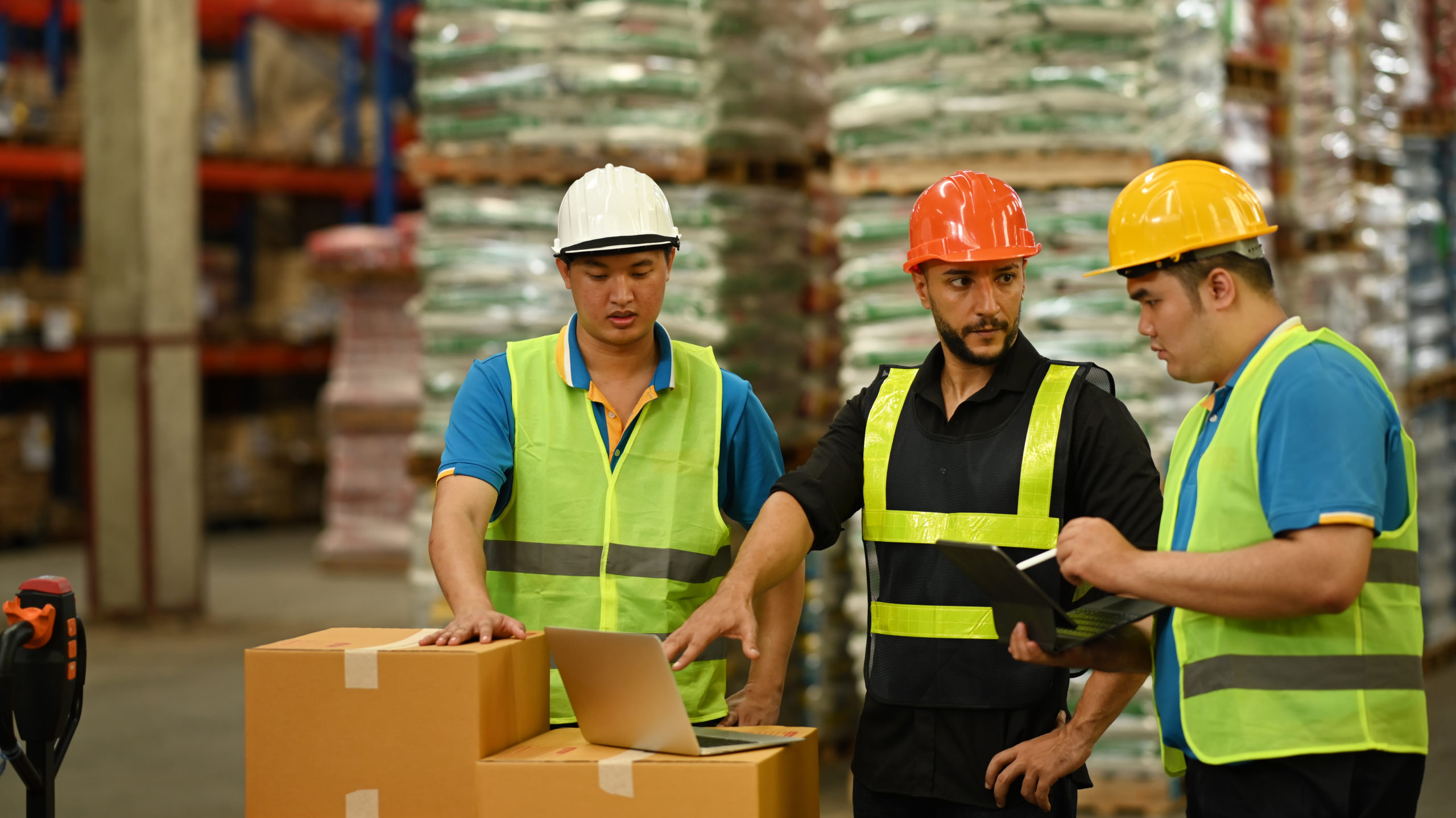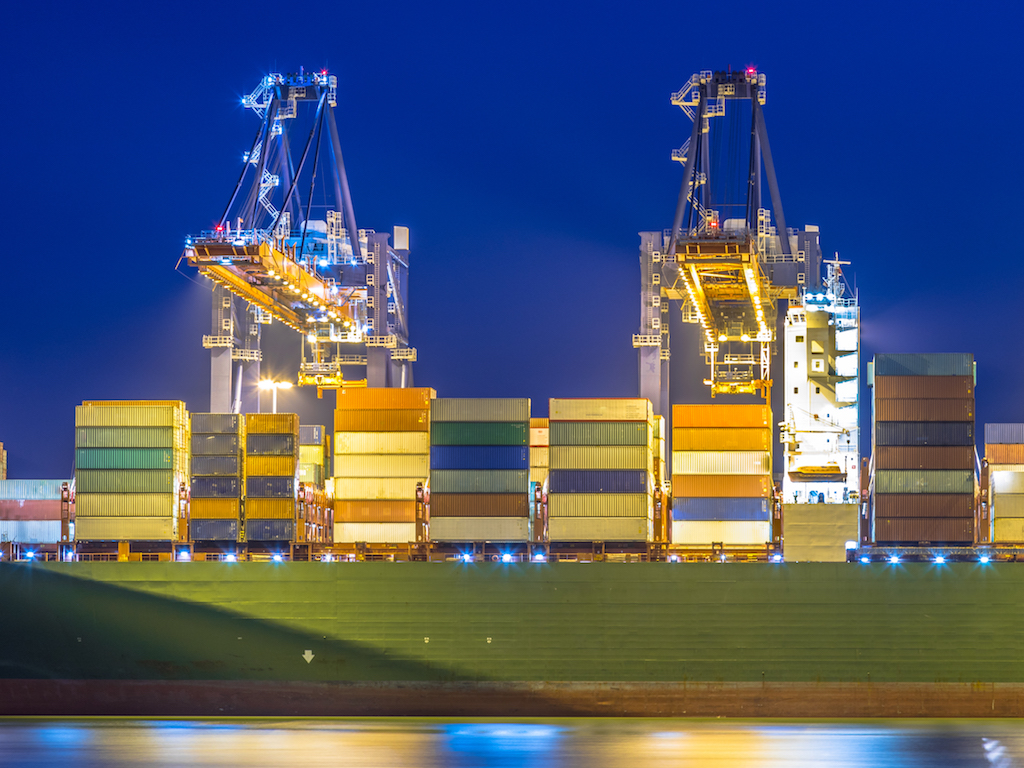
Artificial intelligence and machine learning are transforming the terminal operations industry by enhancing decision-making processes, improving hauling infrastructure, and reducing human errors. With newer, enhanced artificial intelligence (AI) and machine learning (ML) systems, terminals can realize increased efficiency and impact on their bottom line.
But despite more businesses in the terminal operations industry considering the transition from legacy systems to these tools, there remains a common question: How do artificial intelligence and machine learning work, how exactly can they improve terminal operations, and is the investment worth it?
Below, we’ll explore how this new technology can help optimize your operations at terminals.
What are AI and Machine Learning?
Artificial intelligence (AI) refers to the technology that enables computers to process data that normally require human intelligence. Many AI applications function at levels beyond human capabilities and can effectively sort through, contextualize, and analyze large amounts of data at much faster speeds than the average human.
AI is widely used today for applications ranging from task automation to data analysis — and even computer vision. But for AI tools to make meaningful decisions, they must be trained to distinguish unique data points.
That’s where machine learning (ML) comes in. ML refers to the algorithms and technology that enable AI tools to leverage mathematical modeling and predictive statistics to identify patterns from complex data, generate actionable insights, and make reliable decisions.
Through continuous improvement and learning from hundreds to thousands of “training datasets,” ML tools become increasingly better at analyzing complex data and providing users with accurate insights. AI and ML will help improve performance and efficiency in any data-driven industry.
Why AI Matters for the Terminal Operations Industry
Businesses in the terminal operations industry can leverage AI applications to generate actionable, real-time insights from large amounts of unstructured data.
For instance, vessels hauling goods over long routes might face unpredictable weather conditions, significantly complicating expected arrival schedules. If ports are overcrowded on a given day, restricted offloading options and the resulting delays heavily impact the supply chain.
Forecasting potential disruptions to these routes is critical to mitigating supply chain challenges and minimizing financial losses. As businesses in the terminal operations industry collect large amounts of data (and the Maritime Transportation Data Initiative takes effect), AI applications can analyze time-series data trends and guide detailed planning in real time to mitigate route delays.
The Impact of AI on Terminals
When applied at terminals, AI helps forecast and plan operations.
On the planning side, AI identifies specific patterns to determine when vessels, trucks, or containers will arrive at terminals and rapidly coordinate (or re-coordinate):
- Staffing
- Equipment
- Space availability, including long-term yard storage
- Offloading order and priority
An AI-driven port ecosystem fosters collaboration between supply chain stakeholders, such as port authorities, cargo owners, and third-party logistics providers. Increasing the alignment between each stakeholder will only help reduce congestion, improve the efficiency of terminal operations, and ease compliance burdens, making those terminals more competitive.
AI also enables robust automation of terminal processes, contributing to higher productivity and cost reduction at terminals. Per McKinsey, AI-driven port automation projects could reduce operating expenses by 25 to 55% and improve productivity by 10 to 35%, providing businesses with more flexibility to re-design their operations infrastructure at terminals.

When Should Terminals Utilize AI in Their Operations?
Regardless of where it is most needed, AI will help improve the overall efficiency of terminal operations. However, terminals should consider integrating AI in their operations if they experience challenges with:
- Identifying, tracking, or coordinating vessels, vehicles, and shipping containers, causing port delays and congestion
- Allocating labor resources and equipment efficiently
- Performing predictive maintenance on equipment and preventing failure, resulting in significant repair costs
- Workplace injuries and safety risks
What is the Future of AI for the Terminal Industry?
Although AI helps improve the efficiency of terminal operations through automation, data analysis, and planning, it does not replace humans. Instead, a blend of human involvement and AI tools can dramatically transform the day-to-day operations at any terminal. An established hybrid port infrastructure allows terminals to optimize operations and minimize delays.
By adopting AI-enabled tools like automatic container code recognition systems, you can also avoid accidents caused by human error. These tools augment humans and provide the much-needed support to help terminal staff perform their jobs faster and more effectively. Our team of experts at Tideworks can help you evaluate AI-enabled terminal systems and guide you through optimization to your unique needs.
To learn more about AI tech for your terminal, schedule a consultation.
